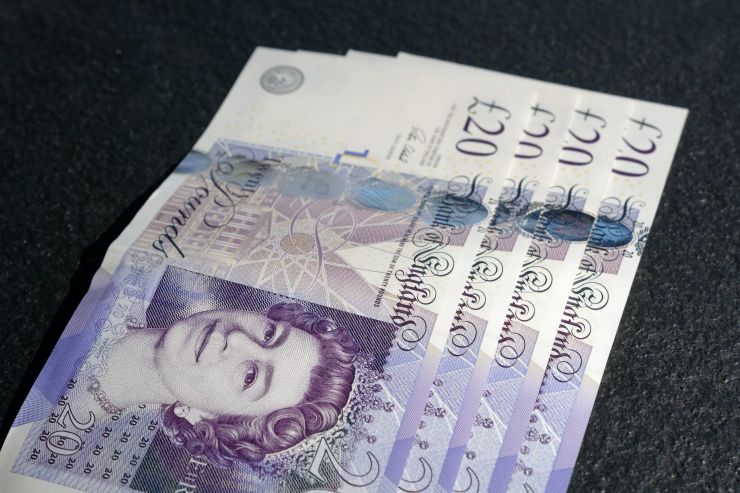Borrowing
THE HOW, WHAT, AND WHERE TO BORROWING MONEY

Apart from mortgages to enable you to buy your home or shared ownership, borrowing money and taking out a loan should be a 'last resort', unless it is calculated 'healthy' borrowing – such as 0% interest credit (also known as interest-free) purchases over a period of time. This is a cost-effective way of borrowing against an essential large item purchase such as furniture or computer equipment. A loan that gives you a better rate of repayment to consolidate other loans can provide a good option for better managing your budget.
There are often high costs associated with borrowing, so it’s important to understand the best options for borrowing money, and to plan and manage these costs to ensure that they are affordable and necessary.
Remember that your credit rating may be negatively affected and you may experience more financial difficulties and debt if you are unable to repay what you borrow.
Where Can I Borrow Money?
Always speak to a regulated financial lending organisation, such as a recognised bank or building society. Unauthorised lenders, Pawnbrokers, and 'pay day' loan companies may seem an easy option, but you will be paying back extortionate rates of interest on your borrowing, which will lead to increased financial difficulty, anxiety, and loss (such as your home or belongings if you fall behind with your financial commitments). Please see our guide on 'Alternative Borrowing Options' for more details.
Bank or Building Society
Most people borrow money from a bank or building society, either by accessing a personal loan, overdraft or credit card. If you have a mortgage, you may be able to remortgage to release equity in your home. If you are in a shared ownership scheme you will need to first discuss this with your landlord.
Credit Unions
Some credit unions provide cheap alternative loans just like a bank or building society. Visit the Find Your Credit Union website to find your local credit union and the service it provides.
What to Check Before you Borrow?
Total credit to be repaid
Add together your loan or credit amount, interest and other charges which you must pay. The Annual Percentage Rate (APR) gives you the true cost of the interest you will pay on your loan.
Payment date
Is the payment date suitable for you? Will you have money available to pay when your loan or credit payment is due? If you don’t, then you may be charged with a penalty fee.
Terms and conditions
Read and understand the fine print which explains your rights, responsibilities, payments, fees and duration of the loan.
Early repayment fees
Avoid credit with early repayment fees if you are likely to repay your credit in full before full payment is due.
Check your credit rating
Apply for credit that suits your credit rating.
Alternatives
Are there any alternative lending streams, for example peer to peer lending? For further information visit the Money Advice Service website.
Affordability
Is this credit affordable? Ensure that you are able to repay what you borrow as your credit rating may be negatively affected if you do not repay what you owe.
Credit Limits and Interest
The amount that you can borrow depends on your personal circumstances, credit rating and level of debt. You may be charged a more expensive interest rate if you have a low credit rating and a high level of debt.
Alternative Borrowing Options
Payday loans
Payday loans allow quick access to credit but interest rates are usually much higher than those charged by banks, building societies or credit unions. Some borrowers experience difficulty in repaying payday loans and experience even more debt and money management problems.
Logbook loans
You may be able to get credit if you use your vehicle as security. This is called a logbook loan.
In order to obtain a logbook loan, you must transfer ownership of your vehicle to the lender by signing a bill of sale and surrendering the logbook.
You will be able to continue using your vehicle as long as you pay your loan instalments.
Illegal lenders (loan sharks)
Persons who lend money but are not authorised to act as a money lender. People and organisations that lend money must obtain a licence from the Financial Conduct Authority. It’s best to borrow money from an organisation or person that has a licence because they must follow good financial practices and industry rules. An illegal money lender does not follow these rules and may use violence and intimidation when you cannot repay what you owe. Interest rates are also very high, so you may get into more financial difficulty if you borrow money from an illegal money lender.
If you have already borrowed money from an illegal money lender call 0300 552 2222 for help.
Doorstep lenders
A doorstep lender visits your home to organise a loan and to collect payment. Interest rates are usually much higher than what you would pay if you borrowed money from a bank, building society or credit union.
Check for cheaper options if you are considering borrowing money from a doorstep lender and always ensure that your lender has an FCA licence.
Pawnbrokers
A pawnbroker will lend money to you as long as you leave a valuable item as security. The contract that you sign will state how much money you must repay along with interest, when your item will be returned to you and what would happen if you do not repay the loan.
Your valuable item acts as security to the Pawnbroker and will therefore be sold if you are unable to repay your loan.
